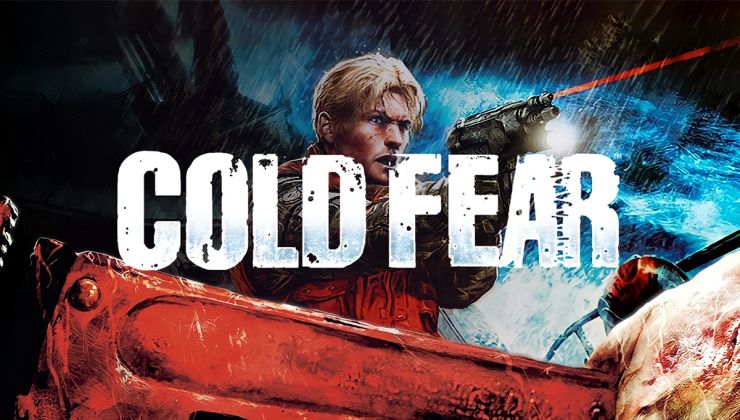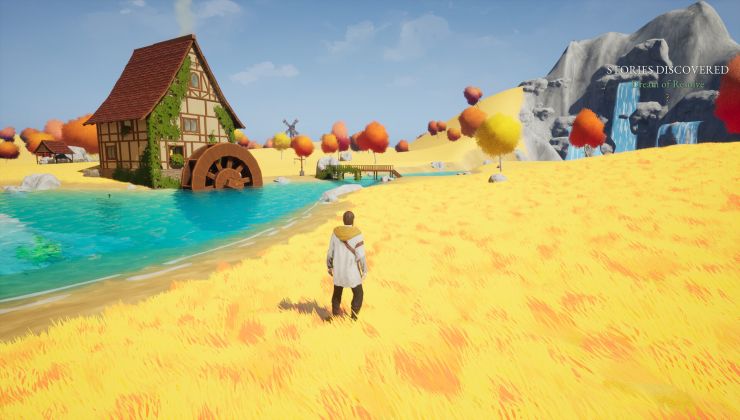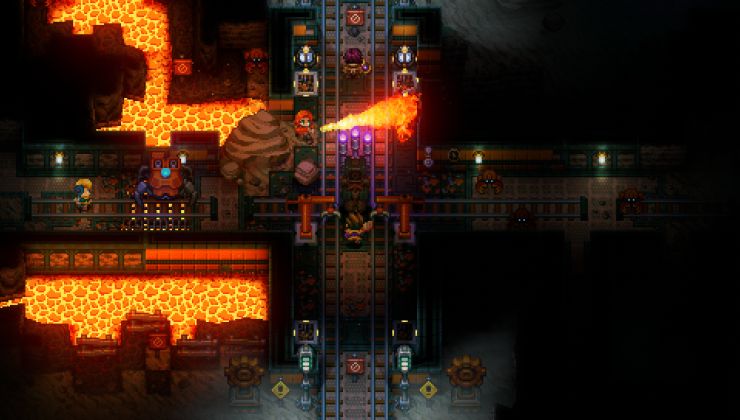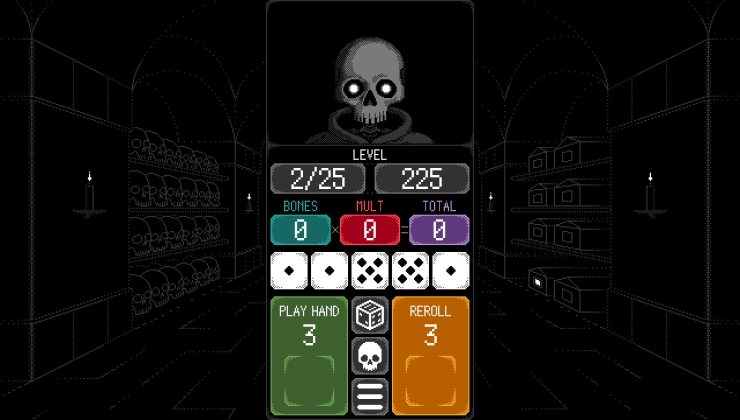In the wake of Unity setting everything on fire with their new revenue model for developers, here's a reminder on what other game engines and tech is out there for developers to look into.
There's actually absolutely loads out there, this is just a small slice of others developers can look into. So this is not an exhuastive list, not even close, because there is quite literally thousands of different pieces of tech developers can use.
Full Game Engines
Godot Engine - Free, open source, no royalties at all. There's W4 Games for commercial support.
- Supports: Linux, macOS, Windows, iOS, Android, HTML5/Web.

Game Pictured - Cassette Beasts, made with Godot Engine.
Defold - Free, full source code access. Not open source under the OSI definition, but incredibly open. Mainly not classed as open source due to their custom license, that forbids anyone to charge for the game engine (even themselves).
- Supports: Linux, macOS, Windows, PlayStation 4, Switch, iOS, Android. Planned: Xbox (Q1 2024), PlayStation 5 (Q3 2023)
Solar2D - Free, open source, no royalties at all.
- Supports: iOS, tvOS, Android, Android TV, macOS, Windows, Linux and HTML5/Web.
Ren'Py (visual novel engine) - Free, open source, no royalties at all.
- Supports: Android, Linux, Windows, macOS, iOS.
Solarus - Free, open source, no royalties at all.
- Supports: Windows, macOS, Linux, Android, Nintendo Switch
HaxeFlixel - Free, open source, no royalties at all.
- Supports: Windows, Linux, macOS, Android, iOS, HTML5/Web.
Unreal Engine - Free, no royalties until you earn $1 million USD. Full source code access (but not open source). Epic also confirmed they can't just change the licensing on you.
- Supports: Windows PC, PlayStation 5, PlayStation 4, Xbox Series X, Xbox Series S, Xbox One, Nintendo Switch, macOS, iOS, Android, ARKit, ARCore, OpenXR, SteamVR, Oculus, Linux, and Steam Deck.
Castle Game Engine - Free, open source, no royalties at all.
- Supports: Linux, Windows, macOS, FreeBSD, Android, iOS, Nintendo Switch. Planned: Xbox, WebGL.
GDevelop - Free, open source, no royalties at all. Uses an events system instead of traditional programming.
- Supports: Windows, Linux, macOS, HTML5.
Adventure Game Studio - Free, open source, no royalties at all but there's a few things to note for commercial games.
- Supports: Windows, macOS, Linux. The editor is only available for Windows.
Bevy - Free, open source, no royalties at all.
- Supports: Windows, macOS, Linux, Web, iOS. Planned: Android.
O3DE - Free, open source, no royalties at all.
- Supports: Windows, macOS, Linux, Android, iOS.
Heaps - Free, open source, no royalties at all.
- Supports: Windows, macOS, Linux, Android, iOS, tvOS, Nintendo Switch, PlayStation 4, Xbox One, HTML5.
Frameworks
LÖVE - Free, open source, no royalties at all.
- Supports: Windows, Linux, macOS, Android and iOS.
FNA - Free, open source, no royalties at all.
- Supports: Windows, macOS, Linux, iOS, tvOS, Xbox (One, Series S|X), Nintendo Switch.
MonoGame - Free, open source, no royalties at all.
- Supports: Windows, macOS, Linux, iOS/iPadOS, Android, PlayStation 4, PlayStation 5, Xbox, and Nintendo Switch.
LDtk (2D level editor) - Free, open source, no royalties at all.
- Supports: Windows, macOS, Linux
There's a lot more to game development than Unity. However, switching game engine mid-way through a multi-year journey certainly isn't easy or even feasible at all for some.
Feel free to give over your suggestions in the comments. These are just some choice picks for developers wanting to try out something different.
https://www.orx-project.org/ - Open source, C++ engine where you make games by writing a bunch of .ini settings. Very well organised templates. Most of the time you just gotta fill in your own variables.
https://dragonruby.org/ - Not open source, but has a free license that does everything for PC games. Cheap licenses for lil bit of extra features like mobile framework.
It's not a complete engine but it has been used for 3D rendering in commercial games, for example in Hob by Runic Games.
Has everything you need to create maps, voxel models, sounds, dialogs, etc.
Or reuse a game that has been open sourced such as id Tech 4.
Quoting: EhvisI think the biggest problem with most engines is the lack of console support. I imagine that is a big breaking point for a lot of devs. And Godot is a prime example of the difficulties in managing that.Sadly the blame is entirely on Sony and Microsoft, who keep a tight grip on all the SDK stuff for it. Quite ridiculous really.
https://github.com/turanszkij/WickedEngine
Quoting: GuestProtip: if you care about your fellow indie game developer that's stuck on Unity, before playing their single-player game for the first time, launch their game with:Interesting!
unshare -rn %command%
Personally, I put all my games in sandboxes and single player games always in sandboxes without any network connection. That's just another way of keeping Unity's "call-back-home" behaviour in check, but definitely not as simple as yours.
Great engine, fully supports Linux and Windows, also have experimental support of Mac, Android and WebGL. You can use C++ or Python or both. Could be easily integrated into any existing Python app and could use any of thousands existing Python packages.
If all that hasn't put you off it, I do think it's a very interesting engine, and one I'd like to get around to experimenting with making games in one of these days. Of note, it's written in Rust, so might be a fun way to help brush up on your Rust skills. :smile:
Does anyone know Star Trek Armada Fleet Ops?
The developers have been working on the project for some time.
It's about one year old therefore not using the newest Godot Engine but I hope it's still applicable.
Supports: Windows PC, PlayStation 5, PlayStation 4, Xbox Series X, Xbox Series S, Xbox One, Nintendo Switch, macOS, iOS, Android, ARKit, ARCore, OpenXR, SteamVR, Oculus, Linux, and Steam Deck.
"
they specified the deck as an different target platform?
Quoting: PhiladelphusI've been following Bevy for the past few years, and I while I think it's a solid engine with significant promise and solid momentum, the developers themselves note that it is still very much a work in progress. It just hit version 0.11 (with releases roughly every 3 months), and they're not afraid to overhaul and break APIs in the name of improvement between versions at the moment. It also lacks an editor program at the moment, though now that 0.11 is out I believe starting work on one is finally ready to happen. There are definitely people using it to build games right now, but even the official Bevy information page suggests Godot if you want/need a full-featured game engine today.By sheer coincidence I started a small Pac-Man clone in Bevy last week, just to see how that engine works and how it feels to work with an ECS.
If all that hasn't put you off it, I do think it's a very interesting engine, and one I'd like to get around to experimenting with making games in one of these days. Of note, it's written in Rust, so might be a fun way to help brush up on your Rust skills. :smile:
Bevy is an amazing piece of software. The authors are true masters of Rust generics, what makes developing with bevy a breeze. For instance, if you realize, while working on a system, that the system needs an additional component, all you have to do is to add it to the system's function signature, and it magically works. No need to touch anything outside of the system.
Similarly, if a system could do more if a certain component is present, but also works if the component isn't present, you can just add it as an Option parameter that's simply set to None for entities that don't have the component. Magic.
It's probably as easy as using an engine can be.
I've worked with both, Unreal and Unity, and both are way less elegant, and require a lot more work for every change you make to your project.
The lack of an editor might make it not suitable for bigger projects (though iirc bevy supports GLTF, so one could probably use Blender as editor), but the incredible speed of developing in it makes it imho very appealing for smaller projects and especially prototypes.
Quoting: Liam DaweAlso, the strict technical requirements regarding toolchains. For some console manufacturers you absolutely need to use their toolchains, and only their toolchains. If you use a programming language that's not supported by their toolchain, you have a problem. Not an unsolvable problem, but a problem that requires contacting the console manufacturers, and usually building your own custom version of the language's compiler...Quoting: EhvisI think the biggest problem with most engines is the lack of console support. I imagine that is a big breaking point for a lot of devs. And Godot is a prime example of the difficulties in managing that.Sadly the blame is entirely on Sony and Microsoft, who keep a tight grip on all the SDK stuff for it. Quite ridiculous really.














 How to setup OpenMW for modern Morrowind on Linux / SteamOS and Steam Deck
How to setup OpenMW for modern Morrowind on Linux / SteamOS and Steam Deck How to install Hollow Knight: Silksong mods on Linux, SteamOS and Steam Deck
How to install Hollow Knight: Silksong mods on Linux, SteamOS and Steam Deck